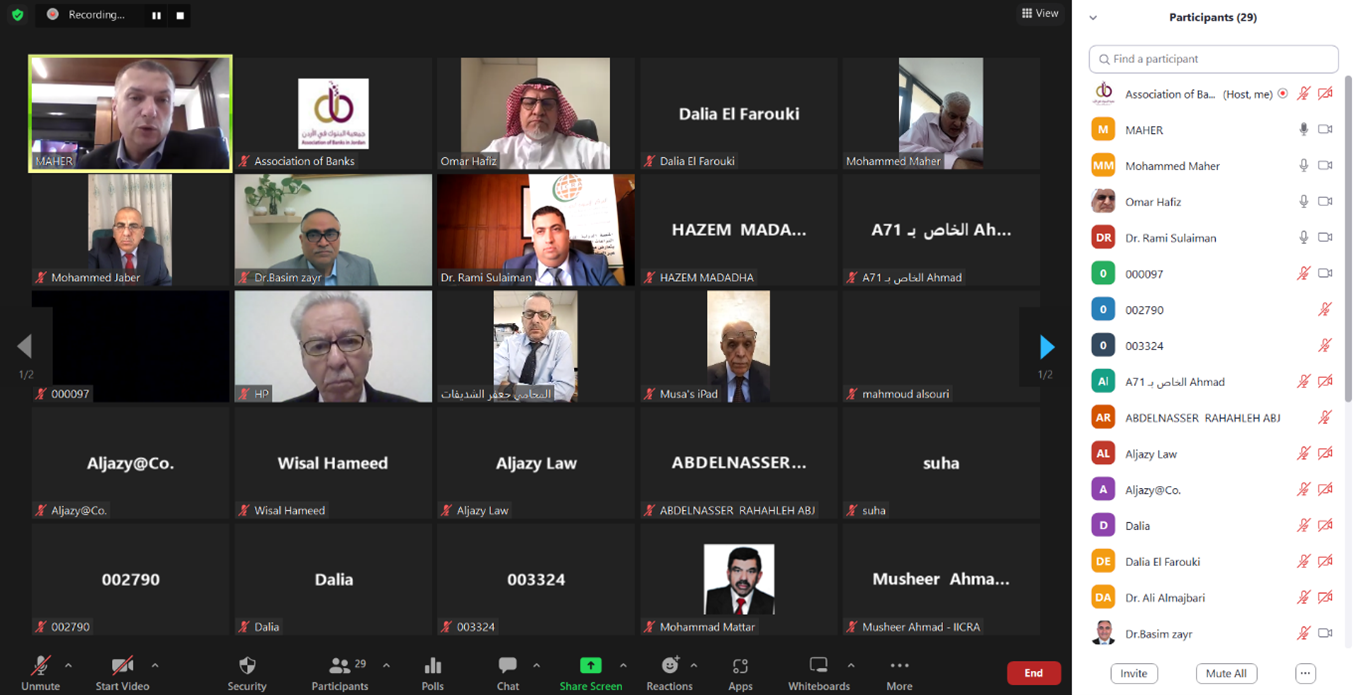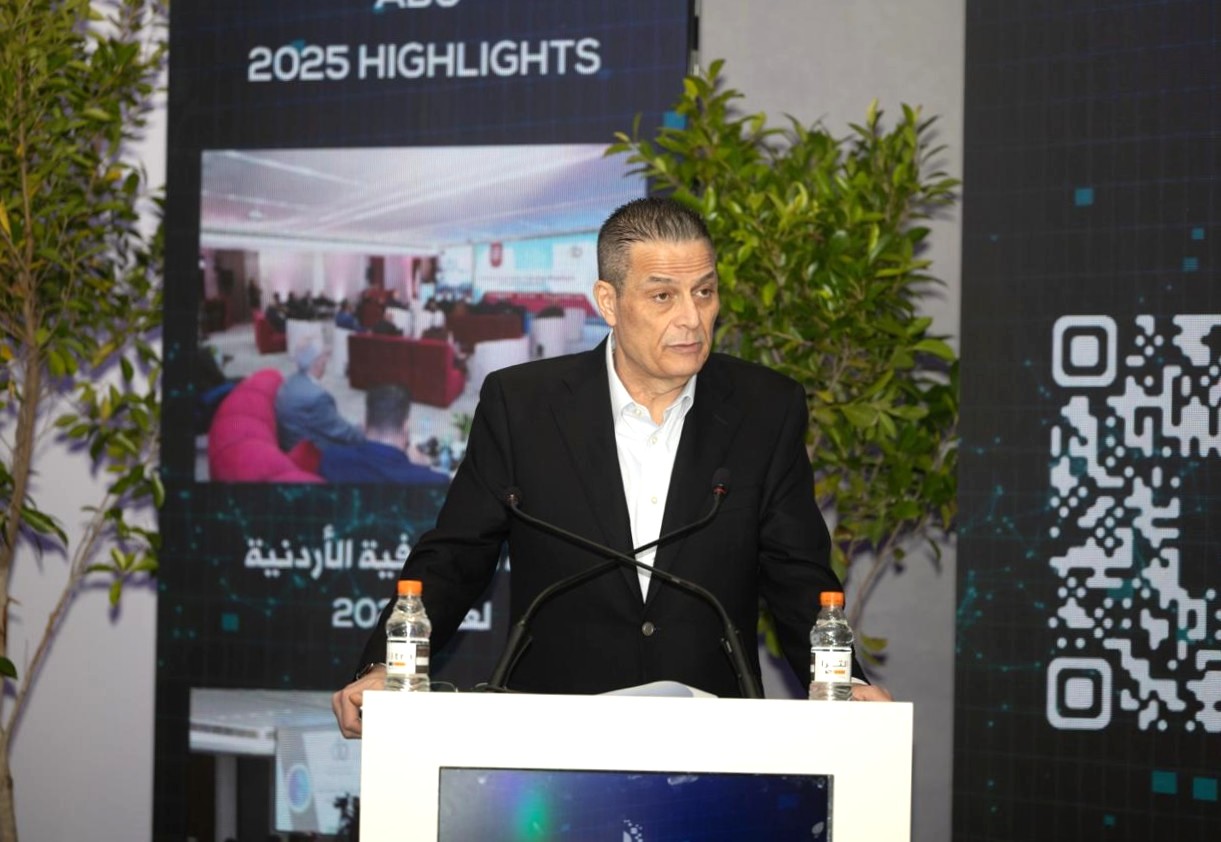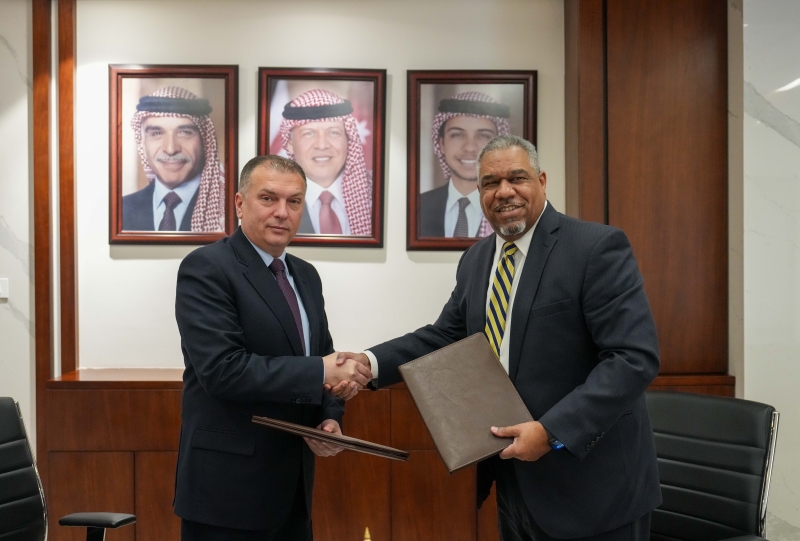
On Thursday, October 27, ABJ and the International Islamic Center for Reconciliation and Arbitration organized a discussion symposium via visual communication technology entitled Settling Financial and Islamic Disputes Through Institutional Reconciliation and Arbitration. The seminar was attended by a number of Islamic banking leaders in Jordan and neighboring countries, in addition to representatives of Islamic banks and financial institutions. A group of jurists and experts in the field of arbitration, including Dr. Omar Mashhoor Al-Jazi and Mr. Muhammad Jabr, presented the seminar alongside Dr. Rami Suleiman, Secretary General of the International Islamic Center for Reconciliation and Arbitration.
The symposium reviewed the status-quo and prospects for reconciliation and arbitration in Jordan, and their advantages in resolving Islamic financial disputes. It also announced the signing of the cooperation agreement between the two parties and the nature of the services provided by the agreement to support the business and investment sector in Jordan and neighboring Islamic countries.
The symposium was inaugurated by Dr. Maher Al-Mahrouq, ABJ Director General, and Dr. Rami Suleiman, Secretary General of the International Islamic Center for Reconciliation and Arbitration.
Dr. Al-Mahrouq said that the symposium was held as the beginning of the joint cooperation between ABJ and the Center which was framed through a memorandum of cooperation in the field of Islamic arbitration. He pointing out that the conclusion of the MoU came as a result of the Association’s endeavor to spread the culture of institutional and specialized arbitration as well as the Islamic Center’s attempt to meet the needs of the Islamic financial industry to resolve its disputes in accordance with the provisions of Islamic Sharia through reconciliation and institutional arbitration and to respond to the characteristics of Islamic financial services in terms of the diversity of products and contracts.
Al-Mahrouq added that the MoU aimed to support institutional arbitration by strengthening the center’s role in the Kingdom as a platform specialized in resolving disputes in the Islamic financial industry, and promoting the center’s objectives in resolving disputes through reconciliation and arbitration. It also sheds light on the axis of qualification and knowledge development by organizing training courses and workshops to increase the public’s culture of the pillars and foundations of specialized arbitration in the Islamic financial industry, and to hold joint scientific and media events that support institutional arbitration.
Al-Mahrouq said, “We hope that the MoU and the joint events that will be implemented according to it will contribute to the establishment of a culture of arbitration as an effective means of resolving disputes, and that it will be reflected in all goodness on our Islamic financial institutions.”
Dr. Rami Suleiman, Secretary General of the Islamic Center said during the opening of the symposium that the Islamic economy has witnessed rapid growth since its inception, with an expectation that its assets will globally reach four trillion US Dollars in 2024, exchanged by approximately two billion Muslims around the world which represent a quarter of the world’s population in addition to the non-Muslims interested in Islamic finance. He said that Jordan is considered one of the most stable countries in the region with many operating Islamic financial institutions making it the safest place for investors from neighboring Islamic countries.
Suleiman indicated that the Islamic economy is in dire need of a solid legal system that takes into account the legal and practical aspects of Islamic financial transactions in all sectors (Islamic banks, bonds, Islamic funds, Takaful insurance). There is also a need to legalize Islamic financial transactions and to develop the most appropriate mechanisms for resolving their disputes. He added that Islamic financial disputes were referred in the recent past to non-specialized arbitrators which caused severe damage to the Islamic economy prompting those in charge of the Islamic financial industry led by the Islamic Development Bank Group, the General Council for Islamic Banks, Financial Institutions and the United Arab Emirates to establish The International Islamic Center for Reconciliation and Arbitration in 2005 as an independent non-profit international organization specialized in settling all types of financial, commercial, banking, investment and real estate disputes in accordance with the principles of Islamic Sharia with its headquarters in the Emirate of Dubai.
Suleiman said that the Center is aware that the Islamic financial industry is a key pillar of the Islamic financial industry in Jordan and neighboring Islamic countries. The Center has worked in cooperation with the ABJ to create partnership that allows those interested to benefit from the services of the Center with logistical support provided by the Association.





